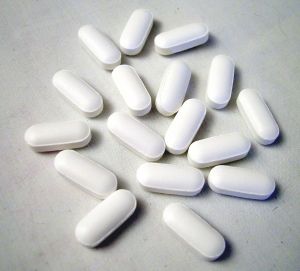 Tylenol (known generically as Acetaminophen) is important when a child has a headache, fever, toothache or muscle injury. It eases pain and allows a child to get a good night’s sleep. Unfortunately, Tylenol is also a powerful toxin. Too much Tylenol can kill a child.
Tylenol (known generically as Acetaminophen) is important when a child has a headache, fever, toothache or muscle injury. It eases pain and allows a child to get a good night’s sleep. Unfortunately, Tylenol is also a powerful toxin. Too much Tylenol can kill a child.
We have all heard the warning and advice to give children Tylenol instead of aspirin to avoid Reyes Syndrome. Many people stopped giving their children anything except Tylenol or acetaminophen. Many think if a drug is sold over the counter without a prescription, it has to be safe, yet the Institute for Safe Medication Practices (ISMP) receives thousands of reports of infants and children receiving accidental overdoses of acetaminophen every year.
Overdoses of acetaminophen may lead to liver damage and in some cases even death. Many parents and medical professionals don’t understand the different dosage concentrations. The label and dosage amounts should always be read before each dose is administered. Infant acetaminophen drops are concentrated, nearly three times stronger than children’s liquid acetaminophen, which may lead to confusion and mistakes.
There are four major ways children to get a deadly dose of Tylenol/Acetaminophen:
- “McNeil, the makers of Tylenol, warn that mixing up doses of infant Tylenol drops with children’s Tylenol liquid kills — the two are not interchangeable.” However, every year toxic overdoses happen because parents mix up the two products and accidentally give children a deadly dose.
 Make sure you are giving your child the correct dose of the correct medicine. If you have two or more children, the mix-up between infants’ Tylenol and children’s Tylenol can be deadly.
Make sure you are giving your child the correct dose of the correct medicine. If you have two or more children, the mix-up between infants’ Tylenol and children’s Tylenol can be deadly. - Sometimes parents accidentally give their child a double dose. This happens when both parents are giving medication to their child. Mom gives the child a dose of Tylenol, and then dad does the same thing 10 minutes later.
 With all medicine, be sure one parent is responsible for giving medicines. If two people are doing it, be sure to communicate to avoid confusion and duplicate doses. At our house, we use a small notebook and record all medications, dosage amounts, and date/time when the medication is given. When everyone works on the same system double doses don’t happen.
With all medicine, be sure one parent is responsible for giving medicines. If two people are doing it, be sure to communicate to avoid confusion and duplicate doses. At our house, we use a small notebook and record all medications, dosage amounts, and date/time when the medication is given. When everyone works on the same system double doses don’t happen. - Toxic overdoes can occur when a child is given two different medicines simultaneously, both of which contain Tylenol/Acetaminophen.
 Check all medicines you give your child to make sure that they don’t contain Tylenol/Acetaminophen before giving them to your child. If you are giving your child two medicines and they both contain acetaminophen, you will create an overdose situation.
Check all medicines you give your child to make sure that they don’t contain Tylenol/Acetaminophen before giving them to your child. If you are giving your child two medicines and they both contain acetaminophen, you will create an overdose situation. - A dropped Tylenol pill on the floor and a child who puts everything in his/her mouth. Some parents think that because Tylenol is “safe” there isn’t much to worry about.
 Keep Tylenol and all other medicines out of reach of children and in childproof bottles. If you drop a pill, make sure you find it and pick it up.
Keep Tylenol and all other medicines out of reach of children and in childproof bottles. If you drop a pill, make sure you find it and pick it up.
Acetaminophen affects the liver, which processes Acetaminophen and removes it from the bloodstream. When too much Acetaminophen is taken, it overloads the liver’s ability to handle the drug. In the process, it creates a toxin that kills the liver, and a person can die several days later.
What makes Acetaminophen so horribly dangerous, for children, is the difference between a “dose” and a fatal “overdose” is so small. According to some medical reports, twice the normal dose will result in liver damage. Some estimates say as many as 56,000 people end up in the emergency room every year due to overdose.
If you think your child or someone else may have taken a Tylenol overdose, call your poison control center or emergency room immediately.
![]() Related Blogs:
Related Blogs:
- Jeremiah’s Story–Part 2: Tonsillectomy
- Top 10 Ways To Child-Proof Your Home
- Poisons: Symptoms and Treatments
![]() Anna Glendenning is a Families.com Insurance Blogger and regular blogger for Adoption and Special Needs Parenting. Photo credit for this blog entry:
Anna Glendenning is a Families.com Insurance Blogger and regular blogger for Adoption and Special Needs Parenting. Photo credit for this blog entry:  (no use restrictions for this photo)
(no use restrictions for this photo)

